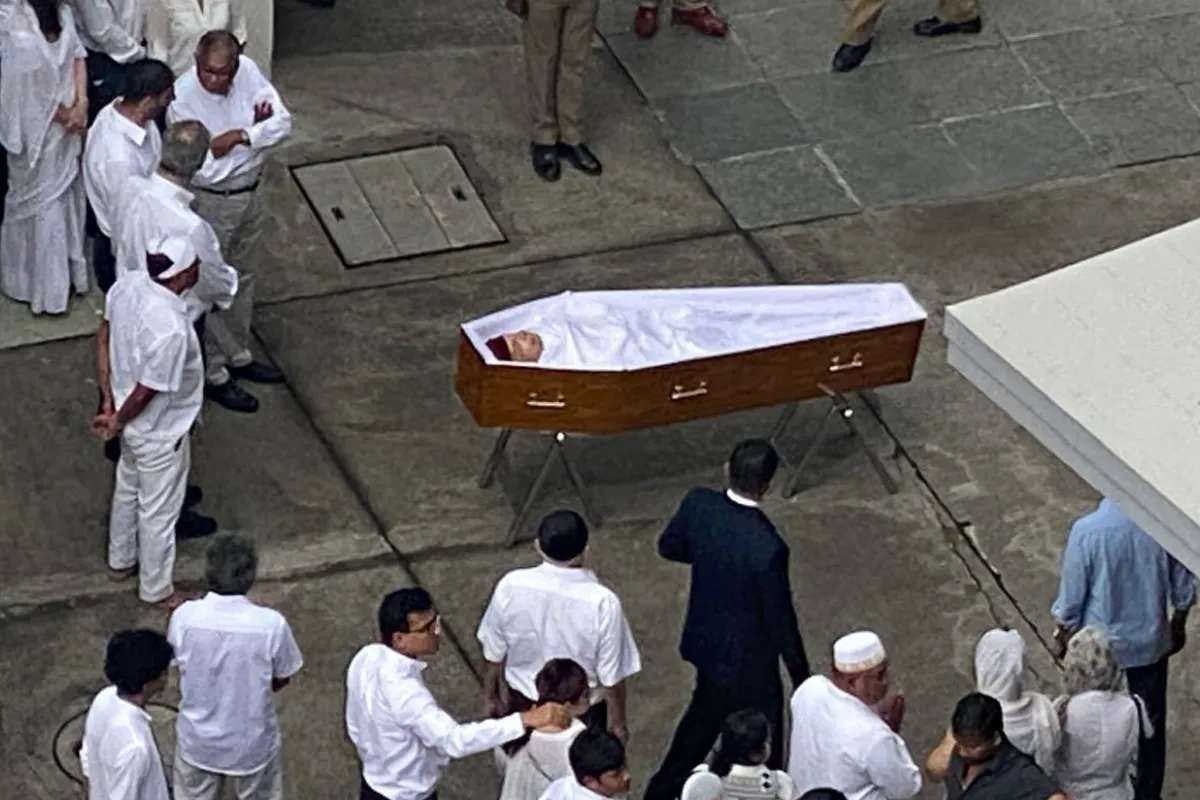Ratan Tata Death: The passing of legendary industrialist Ratan Tata has shaken the nation. His death, which occurred during the Navratri festival , is being seen through a spiritual lens by many, especially in the context of Hindu beliefs. Despite being a Parsi, Ratan Tata will be cremated. This has sparked curiosity and discussions about the significance of deaths during Navratri and how they are viewed in Hindu tradition.
The Significance of Death During Navratri
Navratri is a nine-day festival dedicated to the worship of Maa Durga. It is one of the most sacred periods in the Hindu calendar. According to Hindu beliefs, if a person passes away during Navratri, it is considered highly auspicious. It is said that the soul of the departed has achieved moksha, or liberation from the cycle of life and death. This freedom from reincarnation is considered the ultimate goal of life in Hinduism.
In this light, Ratan Tata’s death on the 7th day of Navratri is seen as a divine occurrence. Hindu tradition suggests that a person who dies during this period is blessed, and their soul attains peace.
Hindu Beliefs About Death and Moksha
In Hinduism, death is not seen as an end but as a transition. The concept of reincarnation, or rebirth, is a key element of the faith. It is believed that after death, a person is reborn in another body, continuing the cycle of life. However, if someone dies during an auspicious period like Navratri, it is believed that their soul breaks free from this cycle and attains moksha.
DON'T MISS
Moksha is the ultimate spiritual goal, representing the liberation of the soul from worldly attachments and the endless cycle of birth and death. This is why deaths during Navratri are seen as a good sign, as the soul is believed to have been blessed by the divine.
Ratan Tata’s Cremation as per Hindu Rituals
Though Ratan Tata was a Parsi, his last rites will follow Hindu customs, which has led to some discussion. Traditionally, Parsi funerals differ from Hindu cremations. Parsis follow the ancient tradition of leaving the body in a Tower of Silence for vultures to consume, allowing nature to take its course. However, in recent years, due to a decline in vulture populations and changes in funeral practices, electric cremation has become more common.
Ratan Tata will be cremated at the Worli electric crematorium in Mumbai around 4:00 p.m. The cremation will be accompanied by a 45-minute prayer service. Despite following a different faith, his cremation according to Hindu customs highlights his deep connection with India and its diverse traditions. His death during the sacred Navratri festival is seen by many as a reflection of the blessings of a divine soul.
A Divine Soul’s Departure on a Sacred Day
Ratan Tata’s passing during Navratri adds a special layer to his legacy. He was a man who showed grace, humility, and a strong sense of duty to his country and its people. His death during navratri festival, combined with his cremation through Hindu rituals, signifies the deep respect and love he commanded across all communities in India. As a divine soul leaving us on such a blessed day, his death is seen as a gift. It is a blessing not just for his legacy but also for the journey of his soul.
Keep watching our YouTube Channel ‘DNP INDIA’. Also, please subscribe and follow us on FACEBOOK, INSTAGRAM, and TWITTER.
